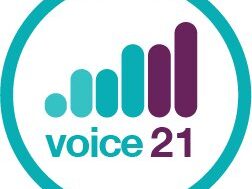Challenging questioning in a primary classroom
Questioning is a common feature of classroom teaching. Brualdi’s (1998) research suggests that many teachers ask more than 300 questions per day! In order to support our pupils’ progress, we need to think carefully about the way that we construct and use questions in the classroom.
Cotton’s (1988) research illuminates some helpful evidence about effective questioning:
- Verbal questions are more effective than written questions
- Lessons where pupils are posed with questions have a greater impact than lessons where pupils are not
- Asking questions frequently is particularly supportive of fact-learning
To get the most out of questioning we need to make sure that we have established a learning culture where pupils are comfortable and encouraged to both answer and ask questions. By planning our questions in advance and using them more visibly and explicitly, we can create an environment where pupils feel comfortable answering questions and two-way feedback between pupils and teacher is ongoing (CUREE, 2018).
As you watch this video of classroom practice, consider how the teacher:
- Utilises questioning during independent practice to check pupil understanding and monitor learning
- Stretches pupils by asking follow-on questions to their answers
- Probes pupils to elaborate on their answers
Whether you’re establishing ways of working for the first time or reviewing your questioning approaches, take some time to reflect on what the teacher has done, how they’ve done it, what they might have done differently, and how this might influence your own practice.
You need to be logged in to view this video
References
- Brualdi A (1998) Classroom questions. Practical Assessment, Research and Evaluation. 6(6) Available at: https://scholarworks.umass.edu/pare/vol6/iss1/6/ (accessed 07 January 2020)
- Cotton K (1988) Classroom questioning. Office of Educational Research and Improvement (OERI). New Jersey: Northwest Regional Educational Laboratory
- CUREE (2018) Creating a Classroom Environment where Pupils Feel Safe to Openly Explore Ideas. Available at: https://my.chartered.college/2018/05/how-can-teachers-ask-questions-to-elicit-feedback-and-create-an-environment-where-pupils-feel-safe-to-openly-explore-ideas/ (accessed 07 January 2020)


